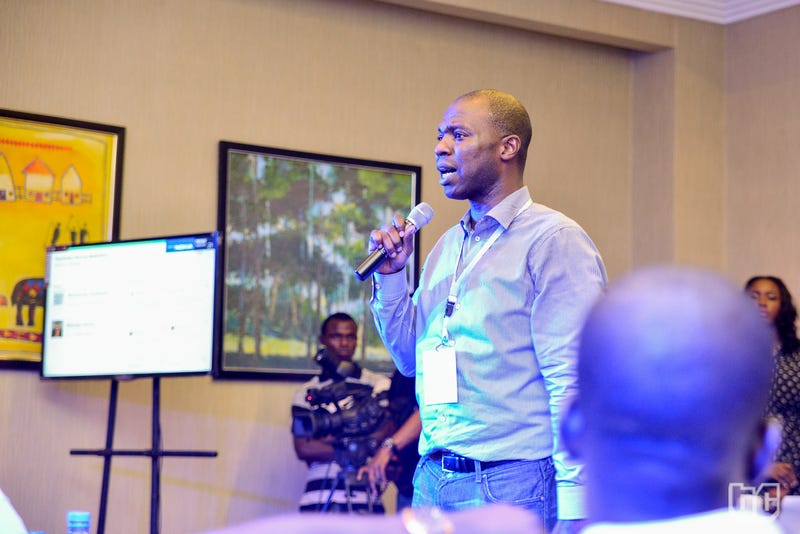BudgIT CEO Appointment Drama: Nigerian Tech Founders In Gov’t Roles – Sellouts Or Savants?

The African tech ecosystem can be said to still be in its infancy. The continent is in pressing need of impactful startup founders, and that’s the whole point of creating businesses that reach out to the people.
Entrepreneurship, in a lot of people’s opinion, is about making a difference. If there’s a big-ticket profit, then the spoils are well-deserved. But what does it mean for startup founders to side with governments?
A series of events has tied the Nigerian government with the startup community. Tech startup founders are getting appointed in public service, taking seats in government offices in what is storied to be a run for impact. It begs the question: Is this a welcome development or a show that the Nigerian government is ready for radical economic change?
Startup Founders Joining Govt?

Just last month, the government of Plateau State appointed Konga founder Sim Shagaya to is advisory council. The startup founder was previously an avid commenter on political issues in the country. After the appointment, he said via his Twitter handle that he would stop airing in his regarding Nigerian leadership.
This, according to him, was in a bid to fix the flawed constitution and corporate structure of the nation. Saya founded a new edtech company uLesson only in March this year. It’s still uncertain whether his new govt position would allow him to focus on impacting the tech ecosystem – like he used to.
Similarly, Jobberman co-founder, Olalekan Olude, became the Special Adviser of Job Creation and Youth Empowerment to the Ogun State government. The Dapo Abiodun-led administration was putting a round peg in a round hole with this appointment. Olude brings in a load of experience in the job and employment sphere.
Impacting Ogun State, with his wealth of knowledge, was a commendable development for unemployment-ridden Nigeria. But, again, no one can tell if this is for the good of impact or unknown motives of the government. The Jobberman COO is yet to make (or announce) any strides in his new public seat.
BudgIT-Budget Conudrum
Most recently, BudgIT co-founder, Seun Onigbinde, got appointed to a controversial public position. Serving as a Technical Adviser to the Federal Ministry of Budget and National Planning was pretty much a U-turn as to what he (and his company) stands for.
After announcing the appointment, his Twitter account got deactivated. But when it was restored, Seun claimed the deactivation had nothing to do with his advisory role with the Nigerian government.
Two weeks later, he announced that he’s resigning the role due to the implications it had on his dream as a founder. Apparently, social media comments could have influenced his decision.
So Good, So Bad
Younger, more experienced, and more education people getting involved in Nigerian leadership marks progress. The current administration poorly represents over 60 percent of the young population, most of which are under 25. Coupled with the fact that the government is onboarding tech-savvy citizens, it’s arguable that it’s a good turn for the West African nation.
In a conversation with WeeTracker, David Hundeyin, a CNN Africa and BusinessDay columnist, says Nigerian startup founders are not sellouts. According to him, a more technology-aware leadership is crucial for Nigeria to go into the 4th industrial revolution. Hundeyin, however, says his concerns are as to whether some of the tech founders may be dangerously bordering on naive.
“Some of these tech founders may be under the mistaken assumption that their expertise or knowledge means anything to the establishment that they are trying to collaborate with. Some of the people in power merely want to use these funders for their perceived legitimacy. They still intend to govern as they have always done. But they want the techpreneurs around them to effectively launder their image,” he says.
In Hundeyin’s opinion, startup founders newly employed by the government should not allow politicians to co-opt their legitimacy. “Politicians are willing to use anyone in any field to further their political aims. Their only metric is election results, not governance results. We do not think like them. The tech industry insiders would do well to remember this,” he concludes.
Nothing May Change
The Nigerian government has been repeatedly criticized as an “all talk, and no do” administration. But the effort to instill change is being tainted with some political-business dirt. The turnout of events, especially in BudgIT’s case, shows that there is indeed something wrong with the founders becoming public servants.
At first, Flutter founder and CEO emeritus, Iyinoluwa Aboyeji commended the Nigerian government on getting BudgIT founder on their side. But at some point, the tables turned, and it seemed sarcastic. That’s because BudgIT is the company that keeps the Nigerian government in check. The startup keeps the country’s budget accountable.
If you can’t beat them, join them? That’s perhaps what happened in Seun’s case with the Buhari-led leadership. Resigning afterward only stirred even more controversy.
Iyinolowa, in a later tweet, said: “I think it is that impact matters most. Going to sit down in a government that is doing nothing for people and who you have no power to do something for the people is a waste of time and God-given potential. That’s what I learned from my own time in advising government”.
Aboyeji opines that Seun was pressured to resign on account of his differences with the President. “It is their government and party’s loss,” he says. “Nigeria has gained a voice where it will be heard – in the public not in the corridors of power where it is ignored or subsumed by irrational political interest as opposed to public interest.”
Featured Image: TheTrentOnline